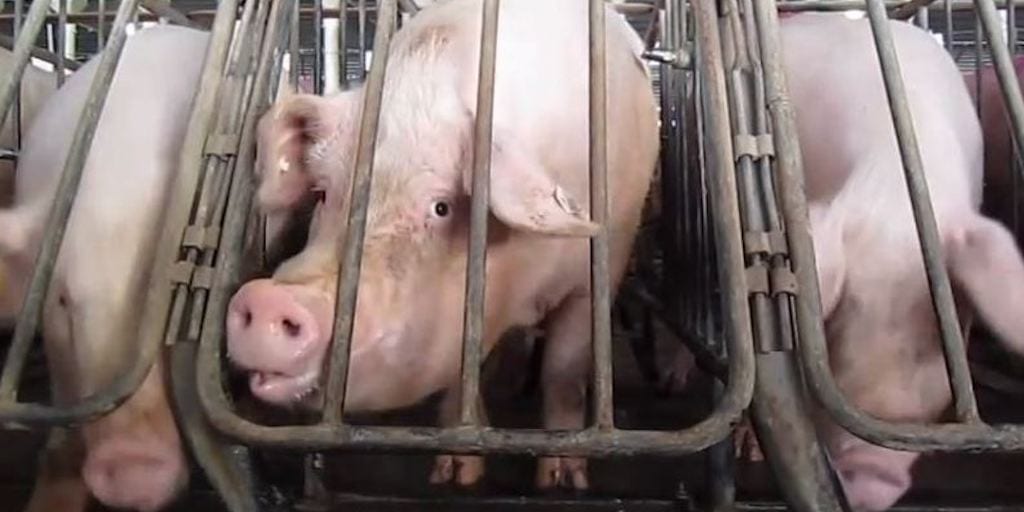Photo: Totally Vegan Buzz
From deciding the budget to regulating the entire workings of the corporations which produce goods for American citizens, Congress has a great deal to choose. The result of the decisions reflects on them, but more importantly, it provides the safety net for the American consumer. One example is to protect the safety of the American consumer by regulating the pork industry. Regulating enough to preserve the food that arrives on the plate each day/night at the table.
Some Americans want more regulation while others want less. Where does Congress draw the line? Recent reporting from Politico Agriculture introduces the disturbing fact that pollution should be regulated by rules created in the 1970s rather than mitigated by present technology:
EPA SUED OVER SLAUGHTERHOUSE POLLUTION: Green groups including Environment America, Food & Water Watch and the Center for Biological Diversity filed the lawsuit in a U.S. Court of Appeals in Richmond, Va., challenging the agency’s Oct. 24 decision not to revise federal pollution standards for slaughterhouses that dump wastewater directly into U.S. waterways.— Under federal clean water laws, the EPA is supposed to review its slaughterhouse water pollution standards every year to determine whether updates are needed to reflect newer technology or methods for controlling pollution.— But the agency last updated the standards 15 years ago, and more than a third of slaughterhouses that discharge waste directly into rivers and bays are still operating under guidelines from the mid-1970s, according to the environmental coalition.The Environmental Integrity Project last year released a report claiming that 75 percent of those plants had exceeded legal dumping limits but faced little or no enforcement. Wastewater from meatpacking plants can be tainted by blood, oil and grease and carry pathogens, nitrogen or phosphorus pollutants, the groups said. Read their statement here.The Agriculture Department is facing a separate lawsuit over its new rule to overhaul pork slaughterhouse inspections. A group of environmental and animal welfare groups filed the challenge in a U.S. District Court in New York on the grounds that USDA’s actions violate procedural guidelines as well as federal laws governing meat inspections and humane slaughter methods. More details here.
Like any other issue facing the nation, the benefits have to outweigh the potential adverse setbacks to the American public. What setbacks could there be in enforcing clean water around slaughterhouses? I do not know. But I am sure when a reader dives into the inner workings of the regulatory procedures for implementing such regulation, the issue is not just black and white.
Although, if the agency is required to look into regulating the pollution coming off from the slaughterhouses as technology progresses over time. Then, voters expect that Congress would enforce (through a hearing) that the agency looks into the matter periodically. Otherwise, our elected officials are not doing their due diligence on protecting the nation's primary food source -- pork. Not to mention, ensuring that each American consumer is protected when they turn on their water faucet. Each of us deserves to have clean, healthy water. And each of us deserves to have clean and healthy food. Hopefully, our politicians realize this too. Happy New Year!!
Related Blog Posts:
Congress Gets Involved In Beef Recall
One Unknown Fact Which Should Cause Consumers To Be Careful About Handling Meat Before Cooking!
How Effective Are Poultry Corporations At Reducing Salmonella In Their Products?

No comments:
Post a Comment